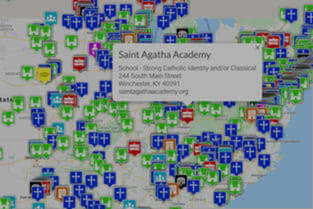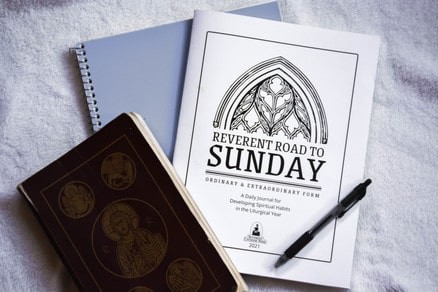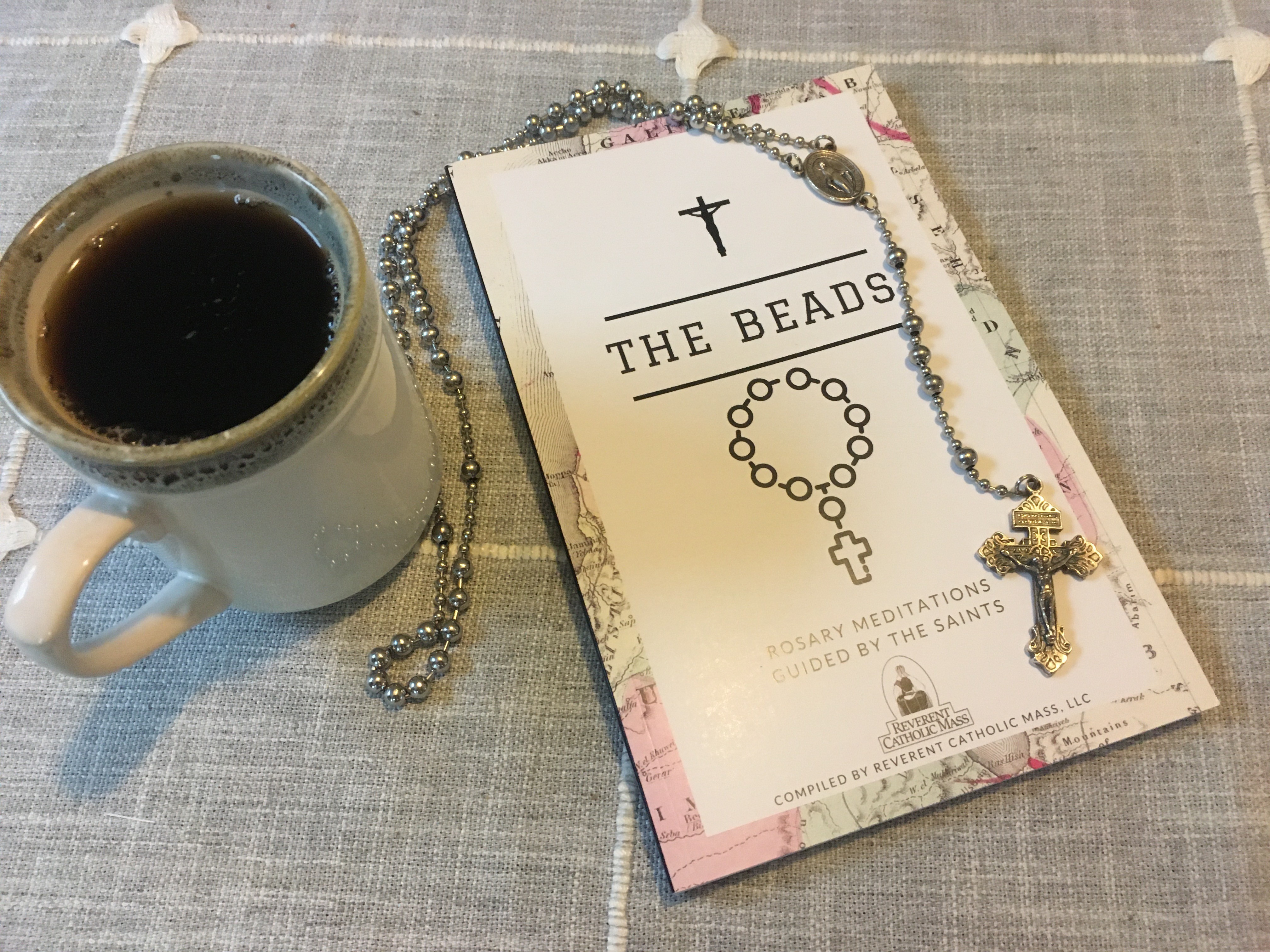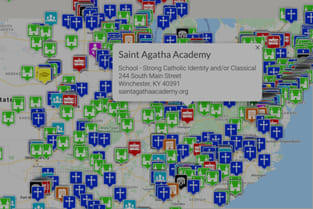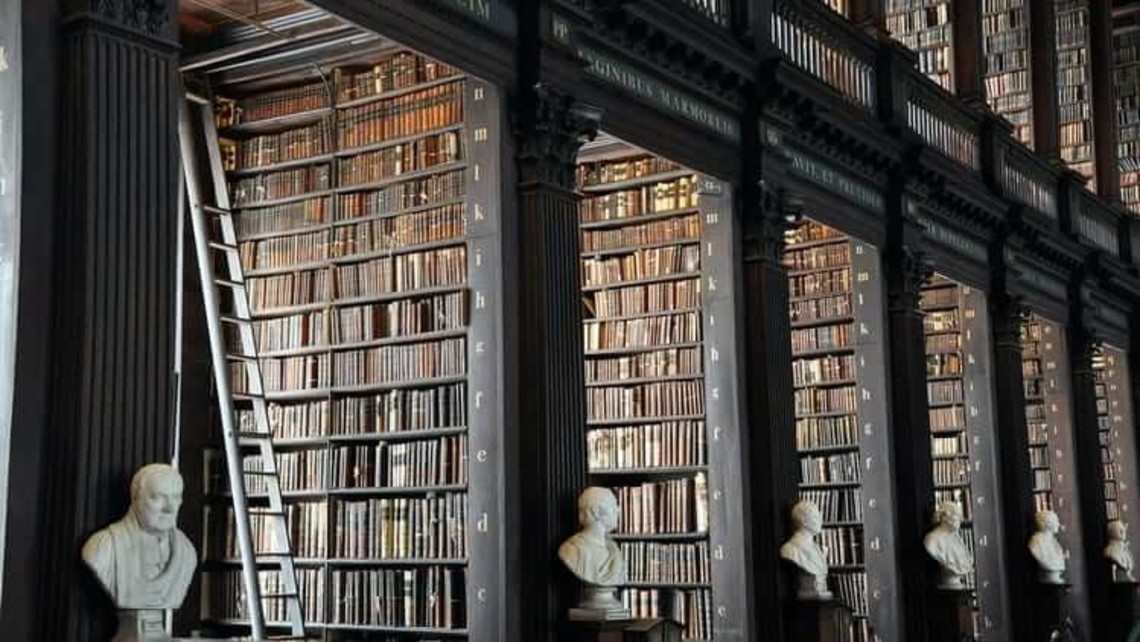
The Best Overview of Catholic Classical Education
Having trouble figuring out what Catholic Classical Education is all about? This simple overview will answer all your questions!
After falling away from the Catholic faith and then experiencing a subsequent reawakening, I started to look back at my Catholic school education and wondered, what happened?
It occurred to me that from my high school graduating class, it seemed that I was the only one even remotely interested in the faith. When contemplating this, I was an adult with few Catholic friends, and of the ones I grew up with, almost all have left the faith.
How did it happen that so many of us, who went through 12 years of Catholic schooling, eventually abandoned or outright rejected the faith?
As I understand it now, it seems that the best way to inoculate your children against the Catholic Church is to send them to a Catholic school.
At some point, Catholic schools completely abandoned the time-tested method of authentic Catholic Classical Education. Instead of leading the way, Catholic school systems followed secular ideas, diluting and destroying the true purpose of education.
If most of the Catholic schools are more concerned about achieving “Blue Ribbon Status” than inspiring young souls, it is no wonder all my classmates including myself, learned next to nothing about our savior, Jesus Christ, our Catholic traditions, or anything about faith and morals.
Religion was just one class of many that several other students and I found boring and pointless.
Access: Easily find Catholic Classical schools and homeschool groups across the U.S. with our premium map!

So, what is the point of education?
To answer this question, it would be beneficial to compare side-by-side the secular idea to the Catholic idea.
Secular Education Curriculum
Almost all educational curriculums (including diocesan Catholic schools) are operated in the same way. This focuses primarily on students acquiring the skills needed to move to the next level, obtain a good career, and succeed in life. Each subject is presented in isolation from other subjects, and students must demonstrate that they understand each one, according to a state-controlled test, to move to the next level.
For example, mathematics is presented as having nothing to do with literature, or social studies, or science. Having an understanding of each totally unrelated independent subject is said to foster a “well-rounded” individual. Being “well-rounded” is what secular society understands to be a liberal arts education.
The secular idea of education sends students down a very linear educational assembly line. This allows students to graduate from elementary school, middle school, and high school. The next stop on the path to success is getting accepted into a good college where you can focus on a particular area of study or become more “well-rounded” by acquiring a liberal arts degree. Finally, this propels you into the workforce, where you can contribute to society, make money, and have a happy life.
Elementary School > Middle School > High School > College > Career > Happy Life
Sounds perfect right?
This fragmented model stifles creativity, denies critical thinking skills, overlooks logic, and leaves students apathetic about pursuing knowledge for its own sake.
Therefore, by the time students reach college, most are not inspired and have lost their natural curiosity. They are easily led astray by shallow ideas and are more interested in getting “good” grades than pursuing knowledge.
The system robs students of their dignity and turns them into objects of utility. They are not humans; they are cogs in a machine and soon-to-be producers and consumers of economic goods. The educational system itself is a means to an end and utilitarian in nature.
The results of this educational model are that many people have a nice career and skills of utility, but limited ability to logically think and consider the big questions. This leads to a society full of “well-rounded” people who deep down feel they lead meaningless lives and search for fleeting pleasures to fill the massive void to distract them from their inevitable demise. How depressing!

Catholic Classical Education Curriculum
True Catholic education is the opposite. Instead of presenting facts at students, it encourages questions and curiosity. It helps students build habits of inquiry regarding the most fundamental questions in life, therefore, the idea of Catholic classical education follows a different path. It is not linear.
You learn because the more you know about God’s created world, the more you know who God is, and the more you know yourself as a child of God.
It takes the secular model of education and completely reorients it back to what education is really supposed to be about in the first place. Discovery. All students should spend their lives inspired to seek the good, the true, and the beautiful.
Catholic Classical Liberal Arts Education is based on the educational model of medieval Christendom. It brings together the three subjects of the trivium (grammar, logic, and rhetoric) and the four subjects that make up the quadrivium (astronomy, mathematics, geometry, and music) These subjects combined make up the seven liberal arts.
The trivium subjects are considered the instruments of learning, where the quadrivium subjects are the platform in which these instruments can be applied.
In general, students are brought through the phases of learning, building, and growing in each area of the trivium.
Trivium
Grammar – This is the beginning subject that prioritizes memorization and understanding how to speak well and form proper sentences. Additionally, there is a focus on learning Latin as Latin is the foundation for all of the romance languages. More than 60% of all English words have Greek or Latin roots.
Logic – Once students are positioned to confidently speak and listen, they can learn how to reason and think. Logic allows young minds to intelligently pursue and discover truth, think about ideas, and think about God and the created world. Logic also allows young minds to discover who they are, in an ordered and well-reasoned way.
Rhetoric – Finally, students enter the stage where they take their ability to speak, write, reason, and think and use those tools to persuade, enter into discourse, and argue in the true sense of the word. There is no appeal to emotion or feelings. Rhetoric allows those who have this skill to bring others to truth through rational discussion.
Quadrivium
Arithmetic allows students to use their skills to understand and study numbers in general.
Geometry allows students to use their skills to understand and study how numbers relate in space.
Music allows students to use their skills to understand and study how numbers relate in time to produce harmony.
Astronomy allows students to use their skills to understand and study how numbers relate in space and time and explain the motions of the universe.
Other Subjects
History, the sciences, literature, etc. are built onto the trivium and quadrivium to ensure that the students gain experience as they continue in their acquisition of knowledge and wisdom.
Trivium is a Latin word meaning, "the place where three roads meet." Because theology is woven within all the subjects, students discover that they are all interconnected. When you learn the three subjects of the trivium, these three roads meet at the intersection of God and His truth. Quadrivium is Latin for “four ways” and if one studies Arithmetic, Geometry, Music, and Astronomy, one learns ways to discover God’s created, ordered world, and how we understand it. All of the subjects of study allow students to contemplate God and His imprint on the universe and humanity.
Theology
Grammar Logic Rhetoric
Arithmetic Geometry Music Astronomy
History Physics Chemistry Biology Literature Art Languages
Liberation
Access: Easily find Catholic Classical schools and homeschool groups across the U.S. with our premium map!
If you pursue the Way, the Truth, and the Life, you will learn the Truth and the Truth will set you free.
If you are free, then you are liberated from ignorance of God and His created world. This is the essence of the idea of a liberal education. You are released from the shackles of the cave and see the world for what it really is. You can be a better Catholic living in the world but not becoming part of it.
This liberating view of education is the opposite of being “well-rounded”. It is universal; it is inspiring; it is Catholic.

Conclusion
To conclude, those who led the way in the reimplementation of Catholic Classical Education said that they “wanted to cultivate what is most human in our children: habits of mind and dispositions of soul—habits of wonder, memory, attention, and thought—that are integral to a fully human life and to happiness in God.” (Hanby)
It is interesting how the end goal of the assembly line in education is supposed to be “happiness”, yet many of those who go through this assembly line are more likely to be apathetic, robbed of meaning in their lives.
Conversely, the traditional Catholic Classical Liberal Arts Education model allows for students to flourish by inspiring curiosity and compelling them to pursue the truth. It sees students as children made in the image and likeness of God, thereby affording them the dignity that they deserve.
If we want to rebuild Christendom, it begins with doing what we can to ensure our children are given their birthright as Catholics and we cannot hide this pearl of great price in the field.
If you are going to send your children to a Catholic school, make sure it is one that is at least interested in the Classical Classical Liberal Arts tradition.
|
Easily find Catholic Classical schools and homeschool groups across the U.S. with our premium map! |
“The human being is a creature with a built-in desire for God, even though this desire often goes by other names such as the desire for beauty or the pursuit of happiness, and is often not articulated or recognized at all…Human culture is best and most fundamentally understood as an expression of that desire.” (Hanby)
If you are looking for more information about Catholic Classical Education check out the Institute for Catholic Liberal Education. It is an excellent resource.
We hope this helps you better understand why Catholic Classical Education is a wonderful option for parents and your own educational pursuits!
PAX,
Tony and Kendra
Hanby, M. (2014, July 21). Why Better Catholic Education is Better Education. Retrieved October 08, 2020, from https://humanumreview.com/articles/why-better-catholic-education-is-better-education

